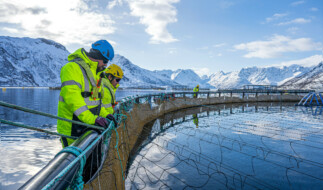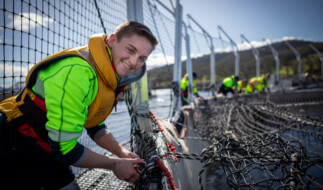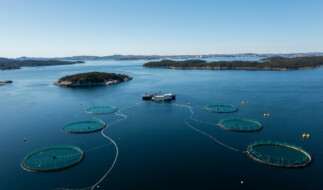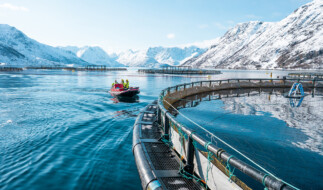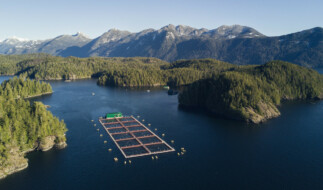The Problem With Plastics In Our Ocean And What Salmon Farmers Are Doing About It
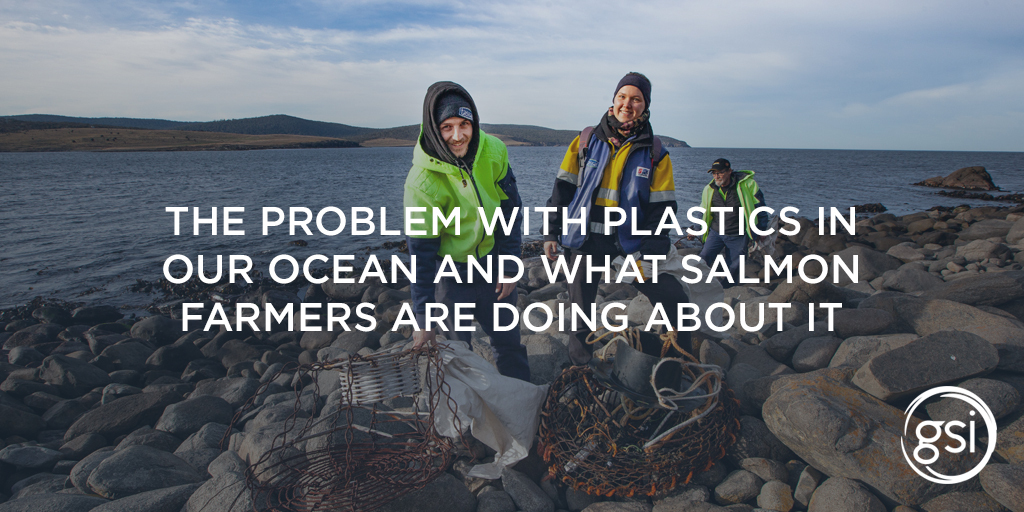
We know the stats and we’ve seen the photos. Plastic pollution is wreaking havoc on our ocean. Approximately 8 million tonnes of plastic enter the ocean every year. That’s hard to fathom, but it’s the equivalent of stacking five garbage bags on every foot of coastline around the world. Now, imagine stacking an additional 10 bags of garbage; that’s the volume of plastic waste anticipated by 2040 if we do not start to change our relationship with plastic. That means we could face a possibility of having more plastic floating in the ocean than fish.
As salmon farmers, our livelihoods and the health of our fish depend on a healthy, plastic free ocean. We see the impacts of plastic each day, which is why it is important to us to take action. From assessing plastic in our operations and across our supply chain to helping clean beaches in our local communities, we’re implementing an eliminate, innovate, mitigate, recycle and remove approach. Here’s how:
Eliminate plastics the industry does not need
Global Salmon Initiative (GSI) members have looked across the entire farmed salmon supply chain to identify where single use plastics can be eliminated and replaced by alternative materials. For example, by using reusable gloves over single use, or reusable containers. This is an ongoing process as we seek to enhance the use of circular economy approaches and eco-friendly alternatives.
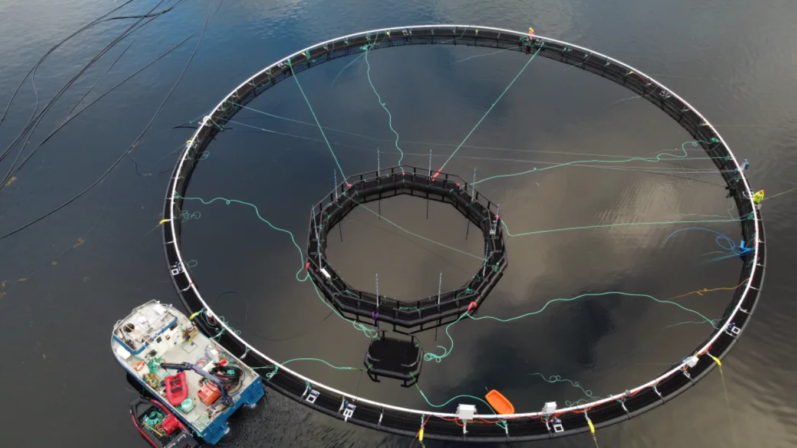
Cermaq salmon farm
Build a circular economy for plastics
Our knowledge sharing platform enables members to identify best practices circular economy for plastics. By applying circular design thinking, we’re reusing materials – like ropes and buoys – from farming operations either within the industry or for other sectors.
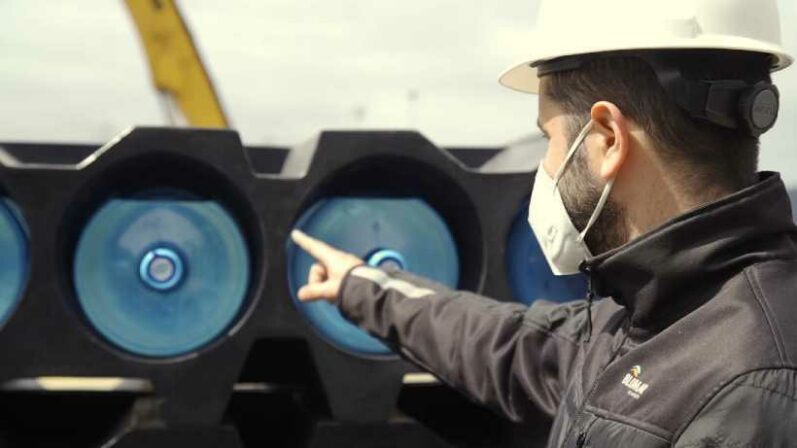
Blumar works in conjunction with Greenspot to turn plastic waste from buoys and floats into racks used to transport water drums
Innovate to develop more eco-friendly alternatives
We continually identify and incorporate alternative materials which are better for the recyclable packaging and vacuum packing to reduce waste. We hope in time we’ll also be able to use compostable packaging and even compostable ropes out on the farms. Because of our members’ reach around the world, once we have new solutions we’re able to implement
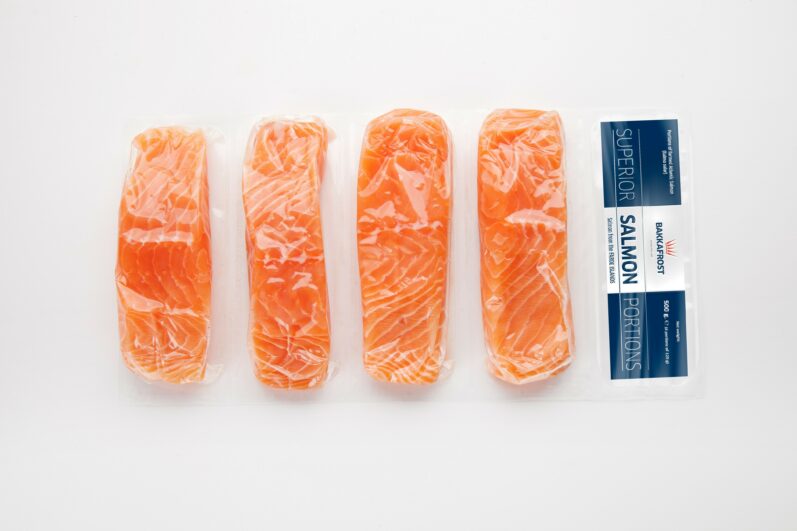
Bakkafrost’s vacuum packing
Mitigate our impact through “material accounting”
Another option members pursue is to register all plastics in the supply chain or materials purchased. This process is called "material accounting" and it allows members to map plastic purchases, avoid loss and support greater recycling.
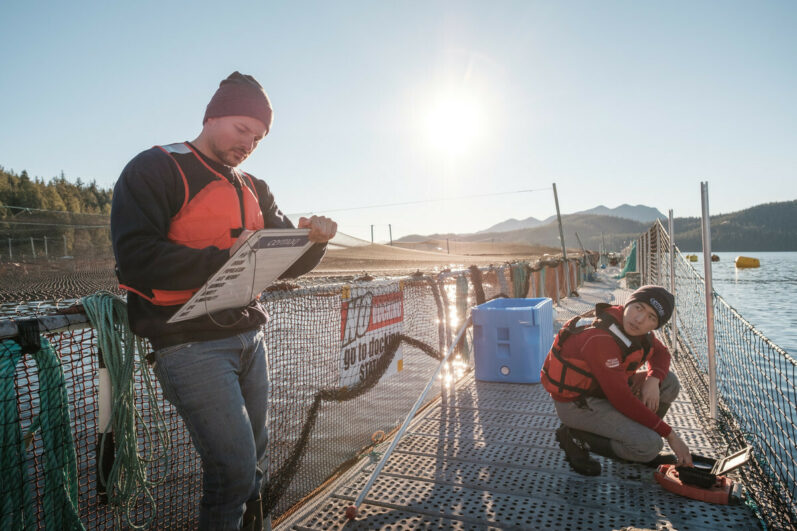
Cermaq accounting for materials used
Recycle at all facilities
Just like we do at our homes, all members ensure proper recycling systems are available and correctly used at all facilities.
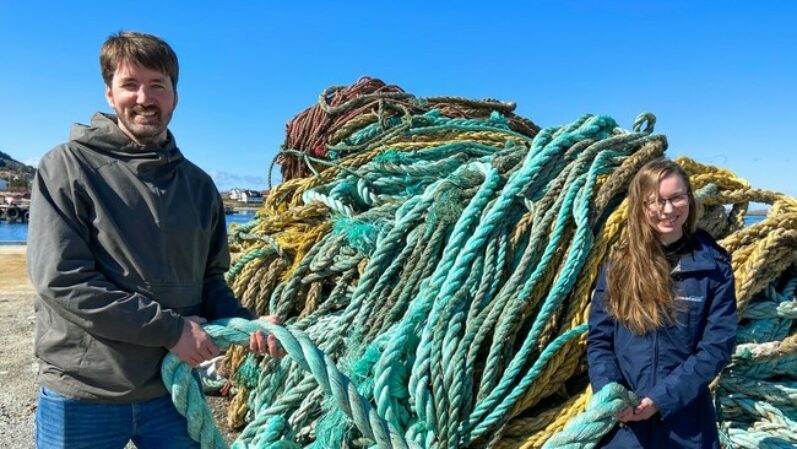
Nova Sea supports fishing gear recycling
Host beach cleanups
Our plastic efforts go beyond the farm. Our members regularly host coastal and shoreline beach clean-ups in their own community and work with their neighbors to educate on other ways to eliminate plastic use.
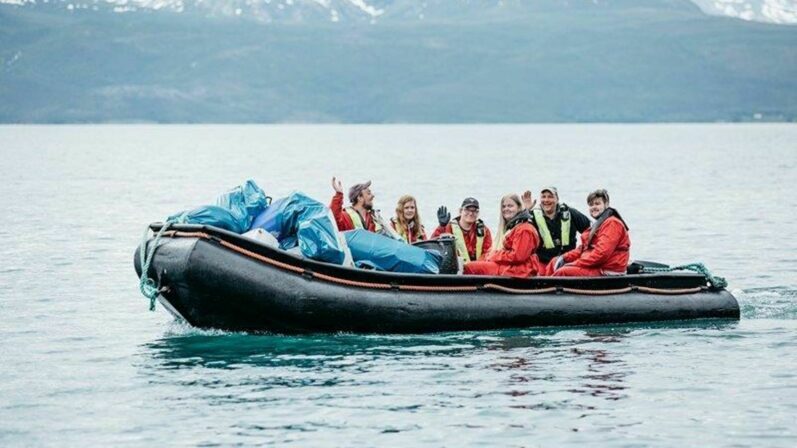
Cermaq hosts a beach clean-up
As ocean stewards, we know the ocean’s health and vitality depends on all of us doing our part. To learn more about how we confront the plastics problem and strive to produce farmed salmon that’s raised to be better, visit our resource hub.
